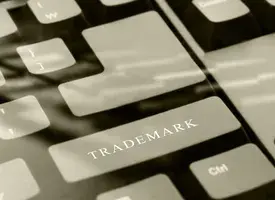TRADEMARKS FILING AND PROSECUTION EL SALVADOR
A trademark is a sign that is registered to distinguish a product or service in commerce. There are other types of signs used in trade that can also be registered with the El Salvador IP Office, such as logos, designations of origin, geographical indications, collective marks and certification or guarantee marks.
In order to legally protect a trademark or other sign used in commerce, it is necessary to register it with the El Salvador IP Office. In El Salvador, trademark protection is granted according to the provisions of Law on Trademarks and other Distinctive Signs, El Salvador.
Trademark in El Salvador may be designated by the following symbols:
- ® (for a registered trademark)
- ™ (for an unregistered trademark)
A trademark is typically a name, word, phrase, logo, symbol, design, image, or a combination of these elements. There is also a range of non-conventional trademarks comprising marks which do not fall into these standards categories, such as those based on colour, smell, or sound.
A trademark provides protection to the owner of the mark by ensuring the exclusive right to use it to identify goods or services, or to authorize another to use it in return for payment. Trademark protection also hinders the efforts of unfair competitors, such as counterfeiters, to use similar distinctive signs to market inferior or different products or services.
The owner of the registered trademark may initiate legal proceedings for trademark infringement to prevent unauthorized use of that trademark, and can license it to the third parties, sell it in return of sum, use it raise equity for business undertakings.
| Relevant office | Law on Trademarks and other Distinctive Signs, El Salvador |
| Filing principle | First to file |
| Nice classification | YES |
| Paris convention | YES |
| Madrid system | NO |
| Multi class system | YES |
| Documents required for filing a trade mark application | Name and address of the applicant, clear representation of the trademark, list of goods and/or services and Legalized/Apostilled Power of Attorney. |
| Prosecution process | Filing, examination, publication, registration, renewal |
| Registration term | 10 years from the date of registration |
| Renewal term | 10 years |
Trademark searches in El Salvador
Under the “First to File” principle, if any other applicants file applications for the identical or similar trademark used for identical or similar goods and services after the first applicant has applied, those later applications will be refused.
Therefore, it is advisable to conduct a trademark search prior to filing a trademark application to ascertain the availability of trademarks, existence of prior identical/similar marks on the register etc., so as to avoid any objection and opposition with respect to the mark.
A trademark search in El Salvador can be conducted for word mark, numbers, images, etc. It is advisable to conduct comprehensive trademark clearance search in El Salvador to ascertain availability of the proposed mark and also to overcome any objection and opposition with respect to mark later on.
Along with trademark search, it is also advisable to do a comprehensive company search and domain search of the proposed trademark in El Salvador.
Filing trademark applications in El Salvador
A person may file multi-class or single class trademark application in El Salvador.
Trademark application can be filed in the following categories:
- Ordinary Applications
- Convention application (claiming priority from a convention country)
Ordinary application in El Salvador
Ordinary trademark applications filed in El Salvador are applications without claiming any priority. Multi class trademark applications may also be filed in El Salvador. However, the trademarks act also lays down provisions regarding the filing of priority applications, wherein priority of the mark can be claimed in the said mark filed in a convention country.
Priority trademark applications in El Salvador /Convention trademark applications El Salvador:
A priority trademark application may be filed in El Salvador. A priority trademark application should be filed in El Salvador within 6 months after the date on which the application was made in the convention country.
Paris convention
The Paris Convention for the Protection of Industrial Property, signed in Paris, France, on March 20, 1883, established a Union for the protection of industrial property. It offers national treatment to the applicant residing in the member country of the union, in other words. National treatment is a very important concept and is essential for successfully achieving the fundamental aim of the Paris Convention. The idea is to provide equal treatment to applications from member countries, in a given member country and not to differentiate between the nationals of member countries for the purpose of grant, and protection of industrial property. Priority application can be filed in El Salvador within six months after the date on which the application was made in the Convention Countries.
Trademark classes for goods and services
El Salvador follows the nice classification of classes. Intellectual property office of El Salvador uses the nice classification of classes that groups together similar goods or services into 45 different classes. Classes 1 to 34 are assigned for the goods and classes 35 to 45 are assigned for the services. Each class contains well defined list of terms and cover all the goods and services.
Trademark Examination in El Salvador
Once the application for the registration is submitted it goes through the examination process which consists of examination on the basis of Absolute and relative grounds of refusal.
Trademarks that are inadmissible for intrinsic reasons
Article 8.- A sign covered by any of the following cases may not be registered or used as a trademark or a part thereof:
(a) It consists of the customary or common form of the good to which it applies or to its wrapping, or of a form that is necessary or imposed by the nature of the good or service in question;
(b) It consists of a form which confers a functional or technical advantage on the good or service to which it applies;
(c) It consists exclusively of a sign or indication which, in everyday, technical or scientific language, or in customary business practices in the country, is a common or customary designation of the good or service in question;
(d) It consists exclusively of a sign or indication which can be used in business to qualify or describe a characteristic of the good or service in question;
(e) It consists of a simple color considered in isolation;
(f) It consists of a letter or digit considered in isolation, unless it is present in a special, distinctive form;
(g) It is contrary to morality or public policy;
(h) It contains an element which offends or ridicules persons, ideas, religions or national symbols of any country or international entity;
(i) It can cause deliberate misrepresentation or confusion as to the geographical source, nature, mode of production, qualities, suitability for use or consumption, quantity or other characteristic of the good or service in question;
(j) It consists of a geographical indication that contravenes the provisions of Article 4, subsection 2;
(k) It reproduces or imitates, either completely or partially, the coat of arms, flag or other emblem, acronym, name or abbreviated name of any State or international organization, without express authorization from the competent authority of the State or international organization in question;
(l) It reproduces or imitates, either completely or partially, an official sign of control or guarantee adopted by a State or public entity, without express authorization from the competent authority of that State;
(m) It reproduces coins or banknotes which have legal tender in the country, securities or other commercial documents, stamps, postage stamps, fiscal stamps or fiscal instruments in general;
(n) It includes or reproduces medals, prizes, diplomas or other elements which presuppose the obtainment of awards with regard to the corresponding good or service, unless such awards were actually granted to the registration applicant or his assignee and proof is provided when the application for registration is filed; and,
(o) It consists of the name of a plant variety which is protected in the country or abroad, if the sign is to be used for goods or services relating to such a variety.
Trademarks that are inadmissible owing to third party rights
Article 9.- Any sign that affects a third party right may not be registered or used as a trademark or element thereof in the following cases:
(a) It is identical to a trademark or other distinctive sign already registered or applied for by a third party at a prior date, which distinguishes goods or services included in the same class;
(b) Owing to its graphic, phonetic or ideological similarity, it may mislead or cause confusion with other trademarks and other distinctive signs already registered or applied for by a third party, if it is to be used to distinguish goods or services included in the same class;
(c) It is liable to cause confusion because it is identical or similar to a trade name or emblem used in the country by a third party from a prior date, provided that the trading practices or activities are similar;
(d) It constitutes a total or partial reproduction, imitation, translation or transcription of a well-known distinctive sign belonging to a third party, when its use is liable to cause confusion or a risk of association with the third party, or unfair exploitation of the notoriety of the sign, in relation to goods included in the same class;
(e) It constitutes a total or partial reproduction, imitation, translation or transcription of a well-known distinctive sign belonging to a third party, when its use is liable to cause confusion or a risk of association with the third party, regardless of the goods or services to which the sign applies;
(f) It affects the right of personality of a third party, or consists partially or completely of the name, signature, title, pseudonym, picture or portrait of a person different from the one filing for registration, unless express authorization has been granted by the third party or his heirs;
(g) It affects the right to the name, image or prestige of a local, regional or national community, unless express authorization has been granted by the competent authority of such community;
(h) It is liable to cause confusion with a protected appellation of origin;
(i) It is liable to infringe a copyright or industrial property right held by a third party, unless he grants his express authorization; and,
(j) The application filed to register the sign was made to perpetrate or consolidate an act of unfair competition.
Trademark Opposition in El Salvador
Any interested person, within two months from the date of publication of the mark in the Official Bulletin, has the right to file to the Controller an opposition to the registration of the mark.
Trademark registration in El Salvador
After the examination, opposition process is completed and the mark is accepted for registration, the mark will be registered for a period of 10 years from date of registration, and the registration certificate is issued.
Trademark Renewal in El Salvador
You can renew your trademark right by filing a request for renewal six (6) months before the trademark right expires.








